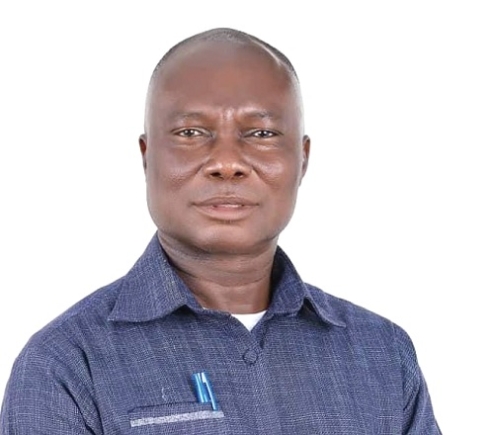
PUWU Rejects Government’s Push for ECG and NEDCo Privatisation
Accra — April 10, 2025— The Public Utility Workers’ Union (PUWU) of the Trades Union Congress (TUC) Ghana has raised strong objections to government plans to privatise portions of the Electricity Company of Ghana (ECG) and the Northern Electricity Distribution Company (NEDCo), warning the move could threaten the country’s energy security and worsen existing inefficiencies.
Speaking at a press conference in Accra on Thursday, PUWU described the proposed involvement of private entities in the operations of ECG and NEDCo as “misguided” and reflective of a shallow understanding of the energy sector’s real challenges.
The Union’s rebuttal comes in response to recent comments by the Minister for Energy and Green Transition on Radio Ghana, where he called on the public to support the privatisation of ECG’s retail operations in a bid to address inefficiencies.PUWU, however, pushed back against this narrative, stating that while inefficiencies exist, they are not limited to the retail side of ECG’s work.
“It is disingenuous to suggest that the challenges of ECG are solely at the retail level,” the union argued, pointing instead to more entrenched issues such as political interference, poor procurement practices, weak governance, and regulatory gaps.
In a detailed position paper, PUWU identified a number of structural challenges plaguing the power sector. These included the burden of take-or-pay power contracts, challenges in metering systems, electricity pricing in foreign currency, and frequent leadership changes at ECG. The union noted that ECG has had seven Managing Directors in the last 15 years, with many removed for political reasons — a trend they argue has undermined long-term planning and stability.
Additionally, PUWU criticised what it described as the appointment of unqualified board members and political interference in procurement decisions, which it said has led to the purchase of substandard equipment, further crippling efficiency.
Rather than handing over ECG and NEDCo to private investors, PUWU is proposing a more inclusive and sustainable approach. This includes the formation of a stakeholder board that incorporates voices from civil society and labour, the implementation of performance-based contracts for ECG management, and greater financial autonomy through capital market fundraising.
The Union is also calling for power purchase agreements to be renegotiated in Ghanaian cedis rather than US dollars, and for the reform of the Self-Help Electrification Programme (SHEP) to allow ECG more operational control.
“ECG remains a critical national asset — not just for economic development, but for safeguarding our sovereignty and social equity,” PUWU stated.
They warned that similar privatisation schemes in other African countries have resulted in job losses, increased tariffs, and reduced public control over essential services.PUWU also reaffirmed its commitment to a resolution passed at the TUC’s 10th Quadrennial Delegates Congress in 2016, which rejected any attempt to privatise ECG or NEDCo.
“The TUC and its affiliates will resist any move to transfer the operations of ECG or NEDCo into private hands,” the union declared.
The debate over the future of Ghana’s power sector is likely to intensify in the coming weeks as stakeholders and policymakers clash over the best path forward. For PUWU, however, the message is clear: energy reform should not come at the cost of public interest.



